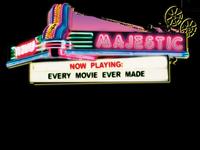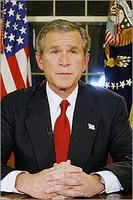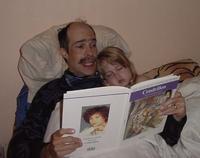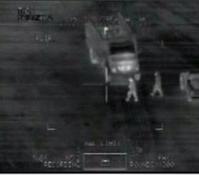|
This is my dynamic, frequently updated homepage. This is a NewsLog, also known as a WebLog or Blog.
Everything is evolving, so don't assume too much.
People to watch:
Adina Levin
Andrius Kulikauskas
Britt Blaser
Catherine Austin Fitts
Chris Corrigan
Clay Shirky
Dan Gillmor
Dave Pollard
David Allen
David Weinberger
Dewayne Mikkelson
Dina Mehta
Doc Searls
Elisabet Sahtouris
Elizabeth Lawley
Euan Semple
Florian Brody
Frank Patrick
Gen Kenai
George Dafermos
George Por
Graham Hancock
Greg Elin
Hazel Henderson
Heiner Benking
Inspector Lohman
Jean Houston
Jerry Michalski
Jim McGee
Jim Moore
John Abbe
John Perry Barlow
John Robb
Joi Ito
Jon Husband
Jon Lebkowsky
Jon Udell
Jonathan Peterson
Judith Meskill
Julian Elvé
Julie Solheim
Kevin Marks
Lawrence Lessig
Leif Smith
Letecia Layson
Lilia Efimova
Lisa Rein
Marc Canter
Mark Oeltjenbruns
Mark Pilgrim
Mark Woods
Martin Dugage
Martin Roell
Mary Forest
Matt Mower
Max Sandor
Michael Fagan
Mike Owens
Mikel Maron
Mitch Kapor
Mitch Ratcliffe
Nathalie dArbeloff
Netron
Noam Chomsky
Paul Hughes
Peter Kaminski
Phil Wolff
Philippe Beaudoin
Ray Ozzie
Raymond Powers
Rebecca Blood
Roger Eaton
Roland Tanglao
Ross Mayfield
Scott Lemon
Sebastian Fiedler
Sebastien Paquet
Skip Lancaster
Spike Hall
Steven Johnson
Stuart Henshall
Thomas Burg
Thomas Madsen-Mygdal
Thomas Nicholls
Timothy Wilken
Todd Suomela
Tom Atlee
Tom Munnecke
Tom Tomorrow
Ton Zijlstra
Lionel Bruel
Loic Le Meur
Nancy White
Mark Frazier
Merlin Silk
Robert Paterson
Colby Stuart
Nova Spivack
Dan Brickley
Ariane Kiss
Vanessa Miemis
Bernd Nurnberger
Sites to watch:
Electronic Frontier Foundation
Co-intelligence Institute
Free Expression Network
Collective Intelligence
Action without borders
Manufacturing Dissent
Explorers Foundation
Disclosure Project
ThoughtsOnThinking
Forbidden Science
Emergent by Design
Greater Democracy
Global Ideas Bank
Independent Media
Space Collective
Friendly Favors
Escape Velocity
Disinformation
Collective Web
WorldChanging
YES Magazine
Disinfopedia
NotThisBody
MetaFilter
Webcamorama
BoingBoing
Smart Mobs
Do No Harm
Imaginify
FutureHi
Openworld
Nanodot
HeadMap
Rhizome
Absara
Edge
Junto
French:
Emmanuelle
Manur
Elanceur
Loeil de Mouche
IokanaaN
Blog d'Or
Le Petit Calepin
GeeBlog
Absara
Guillaume Beuvelot
Ming Chau
Serge Levan
Jean Michel Billaut
C'est pas Mécanique

I live in Toulouse, France where the time now is:
01:11
Unique Readers:

Primarily
Public Domain
Everything I've written here is dedicated to the
Public Domain.

The quotes from other people's writings, and the pictures used might or might not be copyrighted, but are considered fair use. Thus, overall, this weblog could best be described as being:
Primarily Public Domain. |
Syndication:
 ![Validate my RSS feed [Valid RSS]](http://www.newciv.org/pic/valid-rss.png)
|
| Wednesday, October 13, 2004 |  |
|
|
|
 Square Bacteria? Apparently yes. Square Bacteria? Apparently yes. Researchers have managed to grow this square bacterium in the laboratory for the first time. The square bacteria was first discovered twenty-five years ago near the ultra-salty Red Sea. To grow it in the lab, the scientists used a culture with the salt concentration of soy sauce. On other bacteria news, there's an article People are Human-Bacteria Hybrid in Wired. It points out that most of the cells in our bodies aren't really our own, and they aren't really human. Lots of bacteria, fungi and viral organisms are tagging along. All of it together forms a super-organism which is much more than just our human cells. For that matter, it wouldn't work at all if it weren't for all those other (mostly) collaborators.More than 500 different species of bacteria exist in our bodies, making up more than 100 trillion cells. Because our bodies are made of only some several trillion human cells, we are somewhat outnumbered by the aliens. It follows that most of the genes in our bodies are from bacteria, too.
Luckily for us, the bacteria are on the whole commensal, sharing our food but doing no real harm. (The word derives from the Latin meaning to share a table for dinner.) In fact, they are often beneficial: Our commensal bacteria protect us from potentially dangerous infections. They do this through close interaction with our immune systems. And because of all these different genomes and trillions of cells and interactions with the environment, it all gets pretty complex indeed. Much more complex than just trying to understand the human genome, which is only one part of it.
Anyway, I think there's a lot we can learn from bacteria. They developed amazingly advanced societal structures several billions of years before we came on the scene, all of which are still in place, and which pretty much are running this planet. The cells in our own bodies are essentially just evolutions of bacteria, and the whole bodies are just collaborative societal structures of those bacteria. With the additional more loose collaboration with all these other bacteria that tag along.
Have you considered the analogue of us humans potentially being the bacteria of a bigger organism? We tend to think we're destined for something grander. I personally feel a certain obligation to try to solve the world's problems. But what if that were rather immaterial? A bacterium is essentially just going about its business, doing what it is doing, and might be completely ignorant of the bigger system it is part of, and it doesn't really matter. I could care less if the bacteria in my intestines are philosophizing about life and whether they have personal problems. As long as they process the food I eat, I'm happy with them. For that matter, I'd prefer if they didn't aspire to doing anything else. Maybe it in some strange way works similarly for us humans. No reason to go around being stressed about not being able to solve big problems and figuring out the mysteries of the universe. Maybe doing exactly what we're doing, however irrational and silly it might seem at times, is exactly what we're supposed to be doing to keep some kind of bigger organism going. Not a particularly comforting thought, but it is possible. Would be more acceptable if we were conscious partners in some kind of bigger super-organism, as opposed to just being unwitting components of its tarm flora.
[ Culture | 2004-10-13 22:59 | | PermaLink ] More >
|
|
| Tuesday, October 12, 2004 |  |
|
|
|
 You could say it is just politics and differing opinions on issues, and different styles. But I'm afraid it is much more. Now, here's part of an Op-Ed piece in New York Times yesterday: You could say it is just politics and differing opinions on issues, and different styles. But I'm afraid it is much more. Now, here's part of an Op-Ed piece in New York Times yesterday:It's understood that incumbents campaigning for re-election will spotlight the good news and downplay the bad. The problem for President Bush, with the election just three weeks away, is that the bad news keeps cascading in and there is very little good news to tout.
So the president and his chief supporters have resorted to the odd tactic of claiming that the bad news is good.
The double talk reached a fever pitch last week after the release of two devastating reports - the comprehensive report by Charles Duelfer, the chief U.S. weapons inspector, which destroyed any remaining doubts that Iraq had weapons of mass destruction; and the Labor Department's dismal employment report for September, which heightened concerns about the strength of the economic recovery and left Mr. Bush with the dubious distinction of being the first president since Herbert Hoover to stand for re-election with fewer people working than at the beginning of his term.
Mr. Bush turned the findings of the Duelfer report upside down and inside out, telling crowds at campaign rallies that it proved Saddam Hussein had been "a gathering threat." It didn't matter that the report, ordered by the president himself, showed just the opposite. The truth would not have been helpful to the president. So with a brazenness and sleight of hand usually associated with three-card-monte players, he pulled a fast one on his cheering listeners.
Vice President Cheney had an equally peculiar response to the report, which said Iraq had destroyed its illicit weapons stockpiles in the early 1990's. Referring to the president's decision to launch the war, Mr. Cheney said, "To delay, defer, wait wasn't an option."
The September jobs report, released on the same day as Mr. Bush's second debate with Senator John Kerry, was deeply disappointing to the White House. Just 96,000 jobs were created, not even enough to keep up with the monthly expansion of the working-age population.
The somber findings forced the president's spin machine into overdrive. Reality, once again, was shoved aside. The administration's upbeat public response to the Labor Department report was described in The Times as follows: "The White House hailed it as evidence of continued employment expansion, saying that it validated Mr. Bush's strategy of pursuing tax cuts to support a recovery from the 2001 economic downturn."
In the president's parallel universe, things are always fine. It is not just something to say. It is actually quite remarkable that it is possible as a strategy. Politicians have always been bullshit artists. But until sometime recently it wasn't quite possible to completely disregard the truth and to deal almost entirely in double-speak. We are pretty much talking about a parallel universe. About half of the U.S. population thinking that what they're hearing sounds about right. They'd like to hear that things are going well, and we're making progress, and people are working hard. And the numbers don't matter, and it doesn't matter what the actual situation is. And what is remarkable is that even if the facts are reported, fairly visibly, at the same time, it is entirely possible for the public figures to stand up, without flinching, and say that something entirely different happened.
It is like a bad magician on TV. Half of the audience sees really clearly that he drops the card under the table, and the card he then shows you, he took out of his sleeve. You saw him take it out of his sleeve, and it was really obvious. But the other half of the audience thinks that he does real magic and it is no trick. It must be telekinesis. And he looks so honest and sincere. Doesn't matter if the observant part of the audience insists and explains how they saw him pull it out of his sleeve. Doesn't matter at all.
I am on one hand really impressed at the mastery of deception. The facility with which half of a population of apparently normally functioning human beings can be brought into such a complete trance. And on the other hand I'm horrified about how badly the tricks are done, when seen through the eyes of the other half. No, not just that they disagree with the message. The tricks are done in an unbelievably obvious, sloppy and amateurish manner. But they work. They really work. Big things, like wars and economy. And little things like from the last presidential debate: Kerry: The president got $84 from a timber company that he owns, and he's counted as a small business. Dick Cheney's counted as a small business. That's how they do things. That's just not right.
Bush: I own a timber company? That's news to me. ..... Wanna buy some wood? And people laughed. It was really stupid. But he deflected the real question in an instant, while being able to claim he didn't lie. He did lie. He does own a stake in a timber company. See factcheck.org. And, yes, Bush would qualify as a "small business" based on that $84 of income. So that he cleverly can include himself in the number of people who would "get hurt" if they don't get some even bigger tax cuts. Did he really do that little sleight of hand on live TV that consciously and masterfully? No, he was probably just being stupid. But it works. The truth doesn't matter. Makes no difference in that parallel dimension. If everybody has an attention span of a fish, who cares if even the end of your sentence matches the first part.
Now, if that parallel dimension would just split itself off, and Bush could move there with all those people who'll vote for him, and a bunch of nebulous terrorists they can be freaked out about, and they can all stay really happy that they're doing the right thing. Then the rest of us could get on with the world and start cleaning up the place a bit.
[ Politics | 2004-10-12 20:05 | | PermaLink ] More >
|
|
| Thursday, October 7, 2004 |  |
|
|
|
 Via Slashdot a couple of excellent articles from Mark Pesce on Big Media versus Peer-to-Peer Media. Redefining Television and Rolling your own Network. Years ago Mark was the main inventor of the VRML standard for 3D graphics. He's an inspiring fellow in many other areas now, like here on media activism. His last name is said like "Peshee", btw. I only met him once, and I accidentally called him "Pesky". Anyway, he's in Australia now. So, first of all, there are some media organizations that actually are starting to do the right thing: Via Slashdot a couple of excellent articles from Mark Pesce on Big Media versus Peer-to-Peer Media. Redefining Television and Rolling your own Network. Years ago Mark was the main inventor of the VRML standard for 3D graphics. He's an inspiring fellow in many other areas now, like here on media activism. His last name is said like "Peshee", btw. I only met him once, and I accidentally called him "Pesky". Anyway, he's in Australia now. So, first of all, there are some media organizations that actually are starting to do the right thing: The BBC doesn't have the bandwidth to netcast its programming to all 66 million of its viewers. Fortunately it doesn't that kind of capability, because the BBC has cleverly designed the Flexible TV application to act as a node in a Peer-to-Peer network. Anyone using Flexible TV has access to the programs which have been downloaded by any other Flexible TV client, and can get those programs directly from them. All BBC need do is provide a single copy of a program into the network of P2P clients, and they handle the work themselves. More than this, because of the P2P technology used by the BBC .. a Flexible TV user can get a little bit of the program from any number of other peers; rather than going through the process of downloading an entire program from one other peer, the Flexible TV client can ask a hundred other clients for small sections of the program, and download these hundred sections simultaneously. Not only does this decrease the amount of traffic that any clients has to handle, it also means that it produces a virtuous cycle: the more popular a program is, the more copies of it will exist in the network of peers, and therefore the more easily a peer can download it. It seems so logical. There are powerful distributed networks out there, which makes it possible to quickly locate and download video or audio content, with little burden on the orginal distributor, no matter how many people download it. There's really no reason you shouldn't easily have access to any piece of media ever made whenever you feel like it. No reason other than that a small number of very large media companies would like you not to. But, as he says, Fuck 'em. They'll either have to provide something like that themselves, or regular folks will, and who cares if it is illegal.
He goes on to describe how very simple and cheap it is to capture broadcast TV shows on a computer and to share them on the net. Not news to techies, but the details might not have sunk in for everybody. So, here's a bit on BitTorrent, one of the best approaches to file sharing. How is this bit of technological magic achieved? Through the use of a new technology known as BitTorrent - something some of you may have already used. BitTorrent is a P2P filesharing system specifically designed to prohibit one of the biggest social ills which plague P2P networks - a phenomenon known as "leeching". A leech grabs files from a P2P network without providing anything in return. With BitTorrent your download speed - how fast you receive your data - is determined by how much data you're sharing. This means that a torrent starts slowly - because you haven't much to share - and then increases nearly exponentially; as you have more of the file, you have more to share, so your bandwidth increases, until the file is fully downloaded.
BitTorrent was also designed to avoid one of the biggest technical issues which affect P2P networks - the fact that peers come and go at will. BitTorrent creates a "tracker" - a list of all peers which have the file you're downloading - and gives you access to all of those peers. The file itself is divided into smaller sections, and each of these sections can be downloaded from any peer, in any order. If a peer goes off-line while transmitting a section of the file, BitTorrent simply requests that section from another peer. Whenever there's more than 2 or 3 peers, this is sufficient to guarantee a hassle-free download. When there are tens or hundreds of peers - which is often the case - file transfers can happen very quickly and efficiently. Works really well. Makes it painless to download DVDs full of .. whatever. And, yes, with tools like that, any of us can put up our own TV network. And we can see what we want to see, when we want to see it. And to the degree that BigMedia tries to stop us from doing that, they're on their way out. Within a decade - and perhaps a lot sooner - the television networks will have been deprived of nearly all their pre-produced programming. Television will become a live medium - as it was in its beginning, so it will be in its old age. Sports, news and event programming (terror attacks and awards shows) will be the staples for broadcasting in the 21st century. Advertisers will love live television - because it's where the people are - but never again will a television broadcaster be able to dictate to you what you can watch and when you can watch it. Those days are already past - at the price of a small crime of copyright violation.
All this means that as the Internet rises, broadcast television falls. That means cable as well as free-to-air broadcasters, because cable will also be competing against this Internet-based television. As more and more material becomes more consistently available to the TV viewer, the trend will be away from the circumscribed choices offered by the TV channel (five or five hundred channels, neither are very alluring when compared to the near-infinity of programming available over the Internet already) and toward the Internet.
Which gives all of this triumph of the media megacorps the flavor of a Greek Tragedy: when they reached their zenith of power, at that moment the seeds of their downfall were sewn. But even though the tools are there, it is still a bit technical to find your favorite TV show on the net. And if you want to share something, there are a number of different tools you need to put together, and you need to be even more technical. It is just a matter of time, but so far it is not yet easy for just anybody to do it.What we need is a single tool to wrap it all up in a nice, easy to use form. We need a tool which makes publishing content into this media stream no more difficult than selecting a audiovisual file. We need a tool which makes finding the programming you're looking for as easy and straightforward as Google. And we need all of this to be one single tool, so that we can forever erase the false distinction between producer and audience, between professional and amateur which has kept most voices silenced as a few have used their positions as professional producers to push a pack of lies down our throats.
When we get that, it's game over. The networks will no longer matter, they will no longer determine our diet of pre-digested truths. The truth will return to its natural state: crazy, anarchic, contradictory, subjective and as wildly mercurial as a manic depressive who's gone off his meds. In place of a few well-controlled voices, we'll have hundreds, then thousands, then millions of competing points of view, and our job will be to figure out how to find some signal in the midst of all that noise. But at the same time there are corrupt politicians in a number of countries who're trying hard to figure out to make it illegal to share things. Preferably altogether illegal to use methods of data sharing that possibly, potentially could distribute media that is somebody's intellectual property. No, they don't care about your particular intellectual property, it is the property of a dozen media companies we're talking about. But, as it is often said: the internet sees censorship as damage, and routes around it. So, yes, most likely the media landscape has changed irreversibly, and it is just a matter of time before the change will be ubiquitous.
A key piece will probably be the distributed production of media, so it truly isn't about ripping off movies without paying, but about communicating. The blog world again demonstrates some good principles there. I really would have little interest in distributing other people's copyrighted articles in full in my blog. All I want is to pick out a few things, remix them, and say what I have to say. And I'd generally much rather have somebody's personal story and views than BigMedia versions. So, if we added the capability to produce audio and video as easily as we can produce text, then we'd be getting somewhere.
[ Information | 2004-10-07 15:36 | | PermaLink ] More >
|
|
|
|
 George Soros now has a blog. He's done many good things like the Open Society Institute. And, now, it is quite useful when a billionaire can put some significant resources behind opposing George Bush's regime. George Soros now has a blog. He's done many good things like the Open Society Institute. And, now, it is quite useful when a billionaire can put some significant resources behind opposing George Bush's regime.
Yesterday Soros got a good deal more traffic than he had expected. During the U.S. vice presidential debate, Dick Cheney suggested for the viewers to go to factcheck.com to get the truth about accusations made about his former company Haliburton. And after the debate, an average of a hundred people a second went to that site. It is just that Cheney unfortunately had given the wrong URL. He had meant to say factcheck.org. Factcheck.com happened to be some random commercial site hosted by some people in the Cayman Islands. When they realized what had happened, they decided it would be a better idea if they redirected all that traffic to Soros' site, even though he has no relation to them. A good political statement, and Soros' server could probably handle the traffic load. Which factcheck.org is having a bit of trouble with. Seems like a fine and objective site, though. I think Cheney regrets that he tried to mention it, as they found quite a few more flaws in what he said than in what Edwards said.Cheney wrongly implied that FactCheck had defended his tenure as CEO of Halliburton Co., and the vice president even got our name wrong. He overstated matters when he said Edwards voted "for the war" and "to commit the troops, to send them to war." He exaggerated the number of times Kerry has voted to raise taxes, and puffed up the number of small business owners who would see a tax increase under Kerry's proposals.
Edwards falsely claimed the administration "lobbied the Congress" to cut the combat pay of troops in Iraq, something the White House never supported, and he used misleading numbers about jobs. Hard work to keep those guys honest, I'm sure. While watching their debate, I thought they came out about even, but now reading the fact check analysis, it is obvious that they didn't do equally well in the truth department.
[ News | 2004-10-07 15:54 | | PermaLink ] More >
|
|
|
|
 BoingBoing mention of current Wired article The Long Tail, about how, in the online world, there's now a viable market for lots of books and movies that aren't bestsellers or hits, and that you wouldn't find at Blockbusters or Barnes and Nobles. All those items far down the list of the top 500,000 books or films. That would be the "long tail". And if they don't need to actually be stocked in an actual store, and if clever search technologies, like Amazon's recommendations, make them easy to find, there's no reason not to sell them. And one might actually find that, put together, those fringe items outsell the hits. Summary: BoingBoing mention of current Wired article The Long Tail, about how, in the online world, there's now a viable market for lots of books and movies that aren't bestsellers or hits, and that you wouldn't find at Blockbusters or Barnes and Nobles. All those items far down the list of the top 500,000 books or films. That would be the "long tail". And if they don't need to actually be stocked in an actual store, and if clever search technologies, like Amazon's recommendations, make them easy to find, there's no reason not to sell them. And one might actually find that, put together, those fringe items outsell the hits. Summary:Short form: The rise of online distribution and its unlimited shelf space is leading to a dramatic shift in the entertainment business from hit-driven economics to niche-driven economics. Content that was once relegated to the fringe, beneath the threshold of commercial viability, is now increasingly able to find a market in distributed audiences. The interesting work is now in finding way to push demand down the Long Tail. None of this should be any kind of surprise to anybody paying attention to the internet. Of course we want access to everything ever made, and if it is out there, there will be somebody who's interested in it. Duh. I guess the guy's mostly preaching some marketing speech to media and book companies, to tell them they can make money and be a little more hip by forking over more of what they're sitting on. And he gives examples of people who've done that. And his advice to them is decent: Make everything available. Make it cheap. Make it really easy to find.
Really, some more fundamental things need to change. A free market is to deliver what people want for what they're willing to pay for it. And it has certain inherent mechanisms for adjusting these things. In a free market it is a no-brainer to make available everything that it is possible to make available, and to make it attractive for people to pay for it. But the media companies are instead operating from a monopoly position, deliberately limiting the supply and forcing artificially high prices to be paid for imaginary services. Changing that takes more than just having them realize how they can make money by doing it with more of their inventory. But a good start, maybe.
And, yeah, I want equal access to every movie, tv-show and book ever written.
[ Information | 2004-10-07 20:25 | | PermaLink ] More >
|
|
| Wednesday, October 6, 2004 |  |
|
|
|
 Fast Company article about how networks of amateurs more and more are replacing the pros. An increasing number of innovations are now being driven by such networks in fields like music, software, games, economics, astronomy. Fast Company article about how networks of amateurs more and more are replacing the pros. An increasing number of innovations are now being driven by such networks in fields like music, software, games, economics, astronomy.These far-flung developments have all been driven by Pro-Ams -- committed, networked amateurs working to professional standards. Pro-Am workers, their networks and movements, will help reshape society in the next two decades. ..
In the developing world, Pro-Ams are solving a historical scarcity of professional resources. The Grameen Bank, founded by Muhammad Yunus, a Bangladeshi economics professor, trains barefoot bankers to deliver loans to people earning less than a dollar a day. This Pro-Am workforce makes it possible to cost-effectively administer 2.8 million loans worth more than $4 billion. Had Grameen relied on professionals, it would have reached a tiny proportion of the population. ..
Astronomy used to be done in national "big science" research institutes. Now it is also done in global, Pro-Am, open-source collaboratives. There is still a huge gulf between amateur astronomers and theoretical astrophysicists. But the line between professional and Pro-Am astronomers has become fatally blurred. Much the same will happen in other fields.
Some professionals will find that unsettling; they will seek to defend their monopolies. The more enlightened will understand that the landscape is changing. Knowledge is widely distributed, not controlled in a few ivory towers. The most powerful organizations will enable professionals and amateurs to combine distributed know-how to solve complex problems.
Pro-Am activity will continue to expand. Longer healthy life spans will allow people in their forties and fifties to start taking up Pro-Am activities as second careers. Rising participation in education will give people skills to pursue those activities. New media and technology enable Pro-Ams to organize. Combining distributed know-how to solve complex problems. Yep, very cool. I dare say, that's where everything is headed. Flexible, distributed networks.
It is interesting that we could say that being a "professional" often means we have something invested in doing a certain job a certain way, whether we're really the best one for the job, whether it is really the best way or not. There's an inflexibility involved in being very educated in a certain field, being paid for doing it a particular way, and being part of a big slow-moving organization. Even if one is very qualified and organized, it might not for much longer provide any obvious advantage when competing with large numbers of people who have access to the same information, who are free to act on their passions with few constraints, and who possibly might become better organized than any hierarchical outfit can be.
[ Organization | 2004-10-06 23:59 | | PermaLink ] More >
|
|
| Tuesday, October 5, 2004 |  |
|
|
|
 After watching the U.S. presidential debate the other day, I'm puzzled at what it possibly might be that Bush is doing right. You know, I see a guy who's dazed and confused, seeming to be under the influence of some kind of psychiatric drugs, unable to discuss the issues at hand, but simply able to wake up once in a while and repeat the same two or three points, with some conviction, but without much relevance to the particular questions at hand. And, ok, Kerry isn't particularly charming, but he was prepared for defending his position and the rationale behind it and for presenting some kind of plan. So why is it that a considerable percentage of the U.S. population actually considers Bush a leader who delivers a message they like? After watching the U.S. presidential debate the other day, I'm puzzled at what it possibly might be that Bush is doing right. You know, I see a guy who's dazed and confused, seeming to be under the influence of some kind of psychiatric drugs, unable to discuss the issues at hand, but simply able to wake up once in a while and repeat the same two or three points, with some conviction, but without much relevance to the particular questions at hand. And, ok, Kerry isn't particularly charming, but he was prepared for defending his position and the rationale behind it and for presenting some kind of plan. So why is it that a considerable percentage of the U.S. population actually considers Bush a leader who delivers a message they like?
Well, I noticed a particular difference, which also might be a typical difference between what's called conservatives (=republicans) and what is called liberals or progressives (=democrats) in the U.S. You know, Kerry was talking about whether the war in Iraq was justified or not, which based on the evidence, it wasn't. But he thinks that it would be a bigger mess not to "finish" it at this point. No matter how clearly he lays that out, it opens him up to being accused on flip-flopping and not being sure what he thinks. And then there's the key point: What message are we sending? Most of Bush's position added up to "sending a clear message". A message to the world, a message to the U.S. allies, a message to the Iraqi people, a message to the troops in Iraq, a message to the "terrists". It apparently has nothing whatsoever to do with whether that war is backed up with sufficiently good reasons or whether anybody is better off for it or whether sufficient dialogue has taken place. No, the main thing is sending a message. Showing how strong and single-minded we (the U.S.) are.
That is clearly contrasted to the other approach, which is to look at the facts, talk about things, and try to take the best possible action. And if the situation or the information changes, then to talk about that, and see what to do next.
Now, I'd definitely be leaning towards considering the second approach the "proper" way. Not based on any political opinion, but based on the need for examining what is at stake before taking important decisions. Seems self-evident to me. You need to check with reality first, and hear what everybody involved have to say. Dialogue. Cooperation. Seeking the truth. "Democracy" it is called, as well. Going through some kind of process where everybody involved will have some kind of input into making the best possible decision.
So it is with some incredulity that I realize that a whole lot of people don't work like that at all. Rather, they start with the outcome they'd like to see happen, and then they use the means at hand for getting it to happen. Which includes talking about it, repeating it, giving reasons for it, lining up other people who think so, or just going ahead and doing it. And in that camp you score points for not ever wavering from the view you started off with. Staying firm on your conviction is more important than facts, or whether lots of other important stake holders disagree.
You'll recognize it with religious convictions, of course. They don't come out of a dialogue that is intended to unearth the facts and the most desirable outcome. On the contrary, it usually starts with some arbitrary statement interpreted from an old book by a revered prophet, and it is believed necessary to get its intention carried out, without being distracted by facts or feelings or different views.
I'm not aware of any previous U.S. administration before Bush's that worked predominantly in that way. I.e. they work out in some think tank what their position is and what is supposed to happen, and then they go and do it, and facts and differing opinions make very little difference.
But apparently it works because it resonates with something in many people. And I do recognize it always having been there in the "conservative" mindset. Just never before has it been exploited so blatantly and openly.
An example would be the issue of abortion. The conservative view would tend to be that it is wrong, for religious or moral reasons. Thus the task becomes to send a strong message that we don't want that, and laws are merely a tool for sending that message. But even most of the conservative politicians who campaign against abortion rights would privately admit that if their own daughter needed an abortion, they would of course help her with that. Bush Sr was caught admitting that once, for example. The point is that in that mindset, such an apparent conflict doesn't change the position. The position is a certain point which one needs to send a message about. It is only a minor issue whether it really would work for everybody, or whether there's agreement about it, or whether one even oneself would want to adhere to it.
The difference is clear in the typical liberal vs conservative ways of talking about things. Well, I don't know if it is really just a liberal vs conservative thing. I don't really like or agree with the illusion of a political spectrum. But let's stick with those words for the moment.
So, liberal people would tend to want to dig up the facts and talk about them and they tend to want to look for some solution that works for most everybody. Some kind of consensus based on what is on the table. So, obviously one can't preach the outcome in advance, because one doesn't know what it is yet. The answer is "it depends".
For conservative people, that seems terribly wishy-washy and ineffective. The thing to do is to have a strong position, based on moral principles and the protection of your own kind, and then you carry your intention through, no matter what. So, you score points for a noble and moral aim, presented clearly and concisively. And for going through whatever it takes to get there.
So, the way liberals would want to discuss big issues would be to bring forward various kinds of facts and the concerns of various kinds of stake holders. Say the issue is the war in Iraq, or global warming. Instinctively, this kind of person would believe that if we just bring this all out in the open, sane people would realize the truth and act accordingly. And these folks are really surprised if even the most obvious and horrifying facts don't change public opinion.
The conservatives use information very differently. It is not used as input to help people decide what is what. It is used to back up the moral and noble aim that is being carried through, and as part of the message. So, the information that is being provided is to support and strengthen and promote the position we started with. If things aren't going well, the answer is to speak more clearly about the initial position, to create a more clear and focused message, backed up by whatever is available to back it up with.
There's a considerable number of right-wing weblogs which seem remarkably well coordinated and synchronized. Common for a lot of them is that their opponents, the left-wing liberals, loudly are regarded simply as "idiots", "morons", or similar words. You see a surprising number of blogs where that's even stated as the head-line or in the blog's name. You know "anti-idiotarian ..." And they go to some length to create "Laugh at Liberals" websites, and that kind of thing. No, I'm not going to link to them. But my point is the different way of having dialogue. The liberal approach of showing concern for different sides is just very funny and ridiculous for people on the other side. Obviously moronic and naive to think one could actually talk with North Korea, or reason with terrorists, hahah. The right-wing blogs also post loads of information about the bad deeds of the bad guys, but again, information selected to back up a position, not information selected to provide the whole picture.
I don't see very many left-wing weblogs that spend most of their energy on ridiculing right-wing people. Oh, not that anybody would mind, but it doesn't seem to be the same focus. Which is again that difference. From the conservative perspective, it is of crucial importance to take down the opponent. From the liberal perspective it is of crucial importance to bring everything on the table, to be decided. The first approach often wins, because it is much easier and clear.
There are other aspects to the stereotypes of conservative and liberal people, of course. For conservatives, the ideal is a strong father figure who imposes discipline, and discipline and hard work are rewarded. For liberals, the ideal is a nurturing mother figure who listens to everybody's concerns and makes sure there's a warm meal for everybody. For conservatives, the world is a dangerous place and one better protect oneself and one's property against the bad people out there. For liberals, the world is basically a nice place and there needs to be room for all of us in it.
Anyway, I still don't believe in the political categories or spectrum. I think it is a fake scheme to cover up the real choices. Anyway, the political groups often end up doing the opposite of what they're supposed to. Like, in the U.S. it is supposed to be the conservatives that are for small government and private freedom, but yet they create the most humongous central government and spend more money than anybody else, and they put way more curbs on personal freedoms, many only for abstract religous reasons. And the supposedly big government liberals end up balancing the budget and to a much higher degree let people do what they feel is right. Anyway, that's all the U.S. picture. Looks different in other parts of the world.
Anyway, I didn't actually mean to talk just about politics. My point was the difference between worldviews of those who prefer clear, strong messages and those who prefer to have a dialogue about the facts. I'm afraid there's unfortunately still more of the first kind of people.
[ Politics | 2004-10-05 13:53 | | PermaLink ] More >
|
|
| Saturday, October 2, 2004 |  |
|
|
|
 Via BoingBoing, a psychological study has found that economic status doesn't seem to have much to do with happiness. Nothing very new about that, but something worth reminding oneself of. Via BoingBoing, a psychological study has found that economic status doesn't seem to have much to do with happiness. Nothing very new about that, but something worth reminding oneself of.It has been assumed that money increases well-being and, although money can be measured with exactitude, it is an inexact surrogate to the actual well-being of a nation. In a 1985 survey, respondents from the Forbes list of the 400 richest Americans and the Maasai of East Africa were almost equally satisfied and ranked relatively high in well-being. The Maasai are a traditional herding people who have no electricity or running water and live in huts made of dung. It follows, that economic development and personal income must not account for the happiness that they are so often linked to. Of course I suppose that the Maasai have food to eat and clean water and things to do and nobody's shooting at them on a daily basis. Whereas poor people in certain other areas aren't so lucky, and won't be, because they're poor. Just adding up dollar amounts doesn't cut it of course. So here's this tidbit: Instead, the authors propose that a population's "engagement, purpose and meaning, optimism and trust, and positive and negative emotions in specific areas such as work life and social relationships" should be considered when measuring the strength of a nation. Yeah, happiness has something to do with having something meaningful to do, and feeling good about it. And if economics help or hinder that, it is of course part of the equation.
[ Information | 2004-10-02 17:19 | | PermaLink ] More >
|
|
| Friday, October 1, 2004 |  |
|
|
|
 Via Vicky, a quote from Beth Johnson: Via Vicky, a quote from Beth Johnson:When things seem out of control remember that, indeed, they are. It is only the belief that you are ever in control that makes life seem to go awry. The harder you try to rule life, the harder it fights back. Learn to tell the difference between creating in the present and trying to control the future. One feels good, the other bad. It is quite telling that the people who try the hardest, or even who succeed the most in being in control, are people with personality disorders. Obsessive-compulsive neat-freaks and tyrants and dictators. Seems illogical and even counter-intuitive for us humans. Seems at first glance like it should be a great virtue to be in control of oneself and one's environment.
I suppose it still is, in a sense, but it is important to understand which kind of control is impossible, and which tends to drive us crazy. The quote points it out, for that matter. The time to create is in the present. The only thing you really have control over is what you do right now. And, sure, the better you can be aware of what exactly you're doing here in the present, and why you're doing it, and what you're trying to do, the better you'll probably do.
But you have no real control over what happens in the future. If you do things well in the present you have a whole lot of say as to what directions things go in. But you don't control what actually happens in the future. You might control what direction you're pointed in in the present, but you don't control what exactly happens, and you don't have direct control over where you end up.
You don't control the past either. A lot of our baggage relates to that we're trying to wish the past into being something different than what it was. Our regrets and failures. The things we should have done differently. The actions or results we feel ashamed of. You can't really change any of it. But you CAN change what you feel about it now, what you will learn from the past, and what you actually do right now, and how you create what you want now.
You don't control other people. You can influence them, inspire them, help them, guide them, threaten them, whatever. But if you think you actually directly can control them and their thoughts and emotions and actions, then you're probably a bit psycho. What they actually feel like doing is outside your realm of control.
It is one of those paradoxical things. You of course CAN influence others, and make things happen that you'd like to happen. But the catch is that you can only do that by what you do right here in the present moment. You can be knowledgable and perceptive and do the very best you can. And the better you are at it, the more likely it is that you'll create something like what you had in mind. But you're not in control of it.
And, yes, it feels good to do what we know how to do, what we like to do, what we feel is right right now. And all the other things we try to control typically feel bad. They're the causes of stress. Trying to make sure a certain outcome is guaranteed. Worrying about what other people will think and do. Worrying about what we might have done wrong, or what we might have forgotten about in the past. Worrying about what we might have failed to predict, or what we're failing to predict right now. We might feel it is necessary, but generally those things feel bad and stressful.
What makes it all harder is that our society seems to be structured so as to demand of us to be in control of both our past and future. We will be blamed for the things we do wrong, and for our failure to predict and control what happened. Our lives are full of commitments and accountabilities we can't easily opt out of. You need to pay the rent next month, of course. Your kids need to go to school, of course. You need to have done your taxes right, of course. You needed to have had the right permission to remodel your house. If you do the wrong thing, or say the wrong thing, or don't say the right thing, other people might be very upset with you. There are many things that could ruin your career or your reputation if you do them, or don't do them, or you hide them, or you don't hide them. Most of those things aren't here right now, and don't really have much to do with what you're inspired to be doing right now. But any of them can pop up and bite you at any time, and if you screw them up, everybody can easily agree on what a big idiot you are. So it seems like you have to always try to control all of these factors. Most of which you don't really control.
If we were just living from day to day on a south sea island without an economy, picking fruit off the trees when we were hungry, sleeping when we were sleepy, it would seem much easier. Nothing much to worry about, other than what is here right now. But that isn't how most of of live now. And even if you packed up and moved to Tonga, it probably wouldn't work like that today.
So, is it practical, or is it just a cool self-help thing to tell people to make them not be so stressed?
Well, it is first of all an awareness, I think. Know the difference between what you control and what you don't control. As to the stuff you DO control, try to do it as masterfully and deliberately as you can. Don't wait for somebody else to come and do your part. And for the part which you don't control, relax and be prepared for any outcome. Don't be attached to any one particular outcome. Doesn't mean you can't have preferences, and do certain things to make the more desirable things happen. Just means, do your part, but then let go, and don't be attached to outcomes. Know when your part stops, and it is up to the universe and to other people and to luck to make things happen from there on.
Isn't just a motivational thing to day. I'd say it reveals a key principle in how the universe works. And it provides one of the keys to happiness and success. And it also reveals another of our mental fallacies. I.e. ways we use our abstract thinking faculties to screw ourselves up, because we don't understand them well, and we confuse our thoughts about things with the things themselves.
[ Inspiration | 2004-10-01 15:38 | | PermaLink ] More >
|
|
|
|
So, comment spam has begun to be a problem for my blog and for others using my newslog program who have public commenting turned on.
It is obviously automated programs doing it. They're surprisingly clever and circumventing the most obvious ways one would recognize them. But at the same time making mistakes that humans wouldn't do. Poster name or comment filled in as 'room' or 'site', for example. Which gives us a clue that somebody has written a spam program directed at chat rooms or forums. Which is flexible enough to work on blogs too, and figure out what fields to fill in.
Anyway, I've put up several lines of defense now, so let's see if they can get through that.
First I set up a blacklist for IPs. That has limited effectiveness because they manage to post the same spam from a bunch of different rather unrelated IPs. So either the IPs are completely spoofed, or it is done by programs installed by viruses on unsuspecting people's windows computers.
Then, to hinder that a program simply posts the data, without coming from my form, I check the referring page. Oh, easy for them to fake that, so that doesn't guarantee anything either.
Then I put a couple of extra fields in my form which are unique every time, and which both need to be given back, and need to fulfill certain criteria.
I can think of several more things to do, but let's see if that does it first. I'm trying to avoid forcing that one has to register to comment, or that one has to solve puzzles every time or something.
Anyway, it is probably safe to turn public commenting back on.
[ NCN | 2004-10-01 23:59 | | PermaLink ] More >
|
|
| Thursday, September 30, 2004 |  |
|
|
|
 Nadia wanted Cindarella in both French, English and Danish. But she fell asleep about half way through, and I didn't even notice. Sweet dreams. Nadia wanted Cindarella in both French, English and Danish. But she fell asleep about half way through, and I didn't even notice. Sweet dreams.
[ Diary | 2004-09-30 16:27 | | PermaLink ] More >
|
|
|
|
 Paul Hughes talks about the potentials of the dream world: Paul Hughes talks about the potentials of the dream world:I have come to believe that dreams are actually quite real, more real the so-called “waking life” and that this waking life is simply part of what we must make authentic via this dream world. I can’t speak for others, but I am now quite certain (as certain as I can be about anything) that my dream life is trying desperately to become manifest here in the real world. This might sound too new agey for some people, but it all makes perfect sense to me. When things go right in my life, they have this unmistakable resonance with my dream life – the feelings, sensations, gestalts and so on. In my dream life all the answers are there, the solutions to our problems, to world peace, to sustainable society, to genuine happiness for everyone. It seems so obvious, so simple in my dream life, and yet so complicated here. I feel the same way. The best decisions I've made, the most beneficial and surprising turns of my life have all come out of or been connected with my dreamworld. And there's something there, under the surface, bubbling up where it can, which, however undescribable it is, seems to offer the answers we need to make the world work better for us. I easily forget, and I often don't listen, but my experience does tell me that it usually is more effective to sleep and dream and see what surfaces than it is to think of a solution with mental willpower alone.
I don't really understand how it works, but that is probably part of the magic, and part of the problem. That I think I have to understand. We so easily dillude ourselves as to our waking mental faculties. But yet they're so incomplete and faulty, and we don't have all the necessary information, so we're often incapable of making good decisions. And that might be because we try to do it with just the visible 10% of the iceberg. The rest, the more important parts, are under the surface.
It seems like the bigger mind we hook into in dream states works on more channels. It has more dimensions, more connections. More degrees of freedom than our more rigid conscious minds that only can juggle a handful of concepts at the same time, and not very well at that.
But yet there's quite a veil between the different parts of ourselves. So much that most of us don't really remember what happens in that other section of our lives, and when we do it is just a jumbled mess which fades quickly. Which easily can be dismissed as just misfiring neurons and recooked hallucinations of yesterday. Where really it could be infinitely more.
What would happen if the veil lifted significantly more? What if we could be as multi-dimensionally hooked up all the time? What if we accepted the dreamworld more as a legitimate sphere to navigate our lives through?
I don't know, but let me sleep on it.
[ Dreams | 2004-09-30 23:59 | | PermaLink ] More >
|
|
| Wednesday, September 29, 2004 |  |
|
|
|
 There's something hauntingly intriguing about post apocalyptic imagery. Worth1000 has a Photoshop contest to make pictures of the future ruins of today's buildings. Oh, of course we don't want that to happen. But the builders of the empires of the past probably didn't imagine either that one day their mighty monuments would just be piles of stone sticking out of the ground somewhere. Puts things into perspective. Things change. Societal structures rise and fall. There's something hauntingly intriguing about post apocalyptic imagery. Worth1000 has a Photoshop contest to make pictures of the future ruins of today's buildings. Oh, of course we don't want that to happen. But the builders of the empires of the past probably didn't imagine either that one day their mighty monuments would just be piles of stone sticking out of the ground somewhere. Puts things into perspective. Things change. Societal structures rise and fall.
[ Culture | 2004-09-29 17:18 | 0 comments | PermaLink ]
|
|
|
|
 That isn't really a very hard question, but it gets hard if one sort of starts in the wrong place. That isn't really a very hard question, but it gets hard if one sort of starts in the wrong place.
If you start off by assuming the universe and the life in it is just some random and meaningless occurrance, then it is a fairly meaningless question too. It just becomes something to say about people you really don't like. Or if your starting point is a story about God and the Devil, then it becomes a really convoluted thing to try to explain.
I start with the observation and assumption that everybody and everything fundamentally is good. Not particularly "good" in a good versus evil sense. Not a polarized idea. Rather, everything is inherently tending towards being and doing something that has a constructive angle to it. It is good for something in the bigger or smaller picture. Or at least it is neutral.
A rock is a certain piece of something that has certain properties. It doesn't do a whole lot, but it can be a piece of a mountain, or a wall, or many other useful things. If a rock once in a while falls on somebody's head and hurts them, it isn't because the rock is evil and was trying to do some damage. It is rather passively just being a rock, and obeying the law of gravity and things like that. Obviously.
A tree is an alive entity that does a whole lot more, and actively extracts stuff from the environment, grows certain structures, and reproduces, etc. It has a certain natural cycle of how it does things. If one day a dead branch falls off a tree and kills somebody, it isn't because the tree is evil and meant to do that to be mean. Dead branches fall off eventually, and it was just time, and the wind helped a bit and then a bird sat on it. None of which was meant to harm anybody.
How about animals, then. They spend a good deal of their time going around killing other living entities. At least they eat plants, killing them in the process. Or they hunt down other animals, kill them and eat them? Is that evil? Well, we might not like it when we look at it, but the animals appear to have no ill will about it. That is just what they do, and they need to eat. Even the animals eaten don't seem to be as stressed about it as we humans might be when contemplating it. A fish eats another fish. They second fish would instinctively get away if it could, but if it gets eaten there doesn't seem to be much involved that we'll recognize as emotion or suffering. Nothing evil anywhere. Even if they sometimes do it for sport. Our cat will happily keep a wounded lizard alive for as long as possible, while lazily dashing it around. Or bring a half-dead bird into the house and drag it around. Is it evil? Well, we sure don't like it, but no amount of yelling about it seems to make any difference. It will happily do it again. Because it serves a function. A cat in the wild would of course need to practice its hunting skills in order to get food and survive. Nothing personal about it. It is not that it doesn't like birds or anything.
So, now, us humans are a little more complicated. We think abstractly and have feelings about complicated things. But most of the time we also just go about our business. We learn how to do things, find a spot to do it in, we eat, reproduce, entertain ourselves, form social groups, build tools, etc.
Everybody's inherently just trying to live and do what seems to be there to do. When provided with a choice, we'll generally choose the better one according to our aggregated instincts for what we're trying to do and what works. Life is trying to survive well and do better. It would be fair to assume that such a fundamntal aim is built into all life-forms. Certainly we can observe it in anything that lives.
But we humans are more vulnerable to bad information. In part because we do many things abstractly, apparently as opposed to many other players in nature. And, related to that, that our activities get very complicated. It is no longer just to eat the first thing that comes along that looks edible whenever we're hungry. The choices concerning maintaining and improving our lives are increasingly made with abstract information, and with the real stuff being quite removed from us. And we're tied into abstract social systems that might be beyond us individually to understand.
So, if I'm a soldier trained to kill people, and I do so, is that evil? Not necessarily. I might have the information that I'm doing so in order to protect the large social group that I consider myself belonging to. I might have been brought up and educated and trained to look at it a certain way, and I simply do what I consider my duty, and what seems logical. Not necessarily anything personal against the people I kill. I'm acting according to the information I have, the training I've been given, and the circumstances I'm in.
If I were a German soldier controlled by the Nazis, does that suddenly make it different? Not really. I'm still a victim of the information I have and what I've been trained into, and I might have limited choices available to make it all different.
What if I'm a burglar or bank robber, stealing with a gun in my hand, to fund my crack habit. Evil? Maybe just the only solution I saw available to me. Again, doesn't make it right or permissible in society, but for the individual it might still be a matter of doing the best I can with my limited options, and possibly false information and misguided beliefs.
Am I saying that there's no evil, and everybody's just acting within the information they have? Not quite. That's what's going on most of the time. But there's still something we could call "evil". Which is relatively rare.
You know, when one looks at what is going on in the world, and one doesn't get around to seeing it in such an "understanding" fashion as I attempt here, one might well reach some different conclusions. There are bad people in the world, and they seem to get away with it. Being bad works. It is much easier and more productive to think about just yourself, and not care about anybody else.
It is a misunderstanding, really. Again, based on faulty information, an individual looks around him and concludes that other people are evil and therefore they have the upper hand. And insted of continuing to be the victim of them, he flips around and instead assumes what he believes is their kind of personality. Bad. Evil. Thinking just about yourself, and not caring who gets hurt when they get in your way.
It is not about certain types of actions that are inherently evil. Those depend on the context. What is key here is the intention. Somebody who actually intends to do harm and it doesn't bother them.
It is a fake personality. Nobody really were like that originally. There are no evil babies. But a sufficient amount of torture and abuse from an early age from one's parents or from authorities or from what one perceives as "the system" can do it to the best of people. Or one might simply take a "logical" overview of the world and mistakenly conclude that being evil is the way to go.
One might do all that unconsciously, without thinking it through, simply changing one's personality to survive. Or, more chillingly, one might consciously conclude that it will work and one will get ahead over others by being that way.
Very few people have adopted what we could call an "evil" personality. Maybe a couple of percent of us. But that can create a lot of havoc. And any of us might in some moments, for reasons we might not completely understand ourselves, instinctively choose to be evil, and to act with the sole intention to hurt others, maybe to bring oneself ahead.
Either way, it is a copy of what we think others are doing. Which they probably weren't really doing for the reasons we think. The parent who was mean to you when you were little might have had their own story of being a victim of the circumstances and of bad information. They might think the Bible told them to beat you, to make you a better person. Or they were repeating what their parents did to them. Or they were lost and stuck and unaware.
But one way or another, some people end up acting as if they're evil, and they will deliberately hurt other people and enjoy it. Psychopaths. That only happens when they're already pretty bad off, when they've closed their hearts, when they never developed any empathy for others, and when they're loaded with false information about how life works. But there's plenty of that around, and no general education that teaches you how to be social.
So, what to do about that? Well, with the majority of people, who're mostly trying to do what they think is good, reason and kindness and good information will work. If they do something that hurts others, one can make them understand that, and they would naturally feel bad about it and try to do it better. But with the smaller number of people who're stuck in the evil personality, it is quite different. Being nice to them is not going to help, and will only show them how weak you are; and showing them how their actions hurt others is only going to encourage them. Because they aren't really there, but they have adopted a strategy quite opposite to yours or mine, and they've invested a lot in cementing it into place.
Anybody might change. One might wake up and realize what one is doing, and change one's ways. But with this kind of thing, it doesn't happen easily or casually. It does happen, though.
But in the meantime it would be valuable to develop a keen ability to notice who's who. If the person in front of you is still connected with their basic goodness, then you can talk with them, give them information, tell them truth, share how you feel, and you might get along better, and they'll use what they learn to make better decisions afterwards, more beneficial decisions. If the person in front of you is one of the very few who have lost touch with who they really are, and adopted an evil personality, then it is all different. They'd use everything they learn about you to gain an upper hand over you and get you out of the way.
Now, many people have bad inter-personal skills and foggy perceptions and lots of emotional baggage and might easily conclude that what I described fits perfectly on their ex-wife or their boss. So let me say again that the odds are that it isn't so. Most likely any differences could be sorted out if the emotional baggage gets out of the way, and it becomes evident that all parties really would like things to work.
It is a bit dangerous to even have labels like that, as people who can't figure out how to understand each other and get along are likely to hide behind horrible labels they apply to each other. You know, if you have a different belief system than I, and you do things I don't like, you're just evil. No, it is not that I'm talking about.
No, we're more talking about serial killers and otherwise criminally insane psychopaths. Oh, and some of the people who are gang members, muggers, terrorists, etc. But far from all. And indeed there would be people in the group that wouldn't be very obvious at all. Well-educated CEOs of companies, government officials, people who on the surface appear to have great people skills, be charming and eloquent, have families, etc. But underneath, their modus operendi is to sabotage and disable everybody else, preferably in the hidden, so that they can get their own way and the others don't. Everything looks right on the outside, to the casual observer, but inside we have the walking dead, and they leave a trail of destruction in their wake, which they well might succeed to make appear as somebody else's fault. Hard to pinpoint, but very important, to spot the psychopaths that don't look the part. And not to pick them as your leaders.
As some point we might with some luck have a society that makes it easier for us to connect with our basic humanity, and which no longer rewards psychopathic behavior. Until then it is just very necessary to pay close attention to what people's basic motivations really are.
Another angle on it is that despite our individually fairly noble intentions, we might very well accidentally create organizations that possess similar characteristics as that of a psychotic individual. It is not very hard for a large corporation to be evil, and to act in its own interest to the detriment of anybody who gets in the way. For that matter, it is inherent in its design. Only if some of the people running it go way out of their way to make it act more decently and socially can it be otherwise.
[ Knowledge | 2004-09-29 19:28 | | PermaLink ] More >
|
|
| Tuesday, September 28, 2004 |  |
|
|
|
Mitch Ratcliffe on "The Great Enlikenment":
At certain times in history, such as during the Great Enlightenment, differences have been sought out and appreciated. Differences of opinion and, especially, departures from the generally accepted wisdom of the age, have been important to the growth of thought, the evolution of society and industry.
Today is the age of the Great Enlikenment, to coin a word. Everything and everyone is lumped into categories in order to make sorting through the vast amount of information we face more manageable. Differences are minimized and undervalued.
The Great Enlikenment is good sometimes, at least it has salutary qualities, in that it makes teaming up with others by identifying a common goal or enemy quite easy. It also makes mass markets viable, because different products and services are lumped together by people of little imagination and, eventually, the differences disappear through competition and consolidation, so that vast amounts of revenue can be funneled through a narrowly defined organization. The Great Enlikenment makes fashion possible, even the "rebels" who redefine fashion, because sooner rather than later, we'll be dressed like the rebels. It makes George W. Bush possible, because when he looks out from a podium, he sees people screened for their agreement with his policies. Yeah, lumping everything together in dumbed-down simplistic categories can be tempting, and is unfortunately an effective way of controlling the masses. Consolidate it all into an alluring cartoon format, and just ignore anybody who's trying to differentiate things more. We need an antidote.
[ Politics | 2004-09-28 21:22 | | PermaLink ] More >
|
|
|
|
 U.S. Attorney General John Ashcroft has porn on his mind. At least he's decided to waste a lot of government resources on a war against porn. Millions of dollars, dozens of prosecutors, and he plans on going after some of your favorite cable shows too. He apparently didn't understand the part about free speech in the constitution. Anyway, the side benefit of such a campaign is of course that he himself can sit and look at a lot of dirty pictures. Such a pervert. So this picture is quite appropriate. Ashcroft's face made entirely of porn pictures. U.S. Attorney General John Ashcroft has porn on his mind. At least he's decided to waste a lot of government resources on a war against porn. Millions of dollars, dozens of prosecutors, and he plans on going after some of your favorite cable shows too. He apparently didn't understand the part about free speech in the constitution. Anyway, the side benefit of such a campaign is of course that he himself can sit and look at a lot of dirty pictures. Such a pervert. So this picture is quite appropriate. Ashcroft's face made entirely of porn pictures. It is made by Kevin Reynen who also made Bush's face from dead American soldiers, and Dick Cheney's made of SUVs and oil wells. ... Oops, I got it wrong. Kevin Reynen did Abu Rummy, a picture of Rumsfeld made of Iraqi torture pictures from the news, and Crude Dick, of Cheney made of oil wells and SUVs. The War President picture was by Joe. And the Porn Ashcroft picture there is by Alf Eaton.
[ Politics | 2004-09-28 22:25 | | PermaLink ] More >
|
|
|
|
 Jimmy Carter and Gerald Ford were asked to draw up recommendations for changes in the voting procedures in Florida. They weren't followed, however, and now Carter is speaking up. He's somewhat of an expert, having monitored the elections in many foreign countries. And the procedures in Florida don't really measure up, and probably won't be changed before the election. Same procedure as last time, apparently. Jimmy Carter and Gerald Ford were asked to draw up recommendations for changes in the voting procedures in Florida. They weren't followed, however, and now Carter is speaking up. He's somewhat of an expert, having monitored the elections in many foreign countries. And the procedures in Florida don't really measure up, and probably won't be changed before the election. Same procedure as last time, apparently. A fumbling attempt has been made recently to disqualify 22,000 African Americans (likely Democrats), but only 61 Hispanics (likely Republicans), as alleged felons. And the Florida Secretary of State tried to get Ralph Nader included on the state ballot, knowing of course that he might divert Democrat votes, just like the last time. Well, at least it is all being watched rather closely this time around.
[ Politics | 2004-09-28 22:48 | 0 comments | PermaLink ]
|
|
|
|
 Not that I'll make a habit of it, but it is not the kind of thing the media tend to cover much, so somebody might have missed it. A chilling way of getting a sense of some of the routine activities of the U.S. military forces in Iraq is to watch some of the leaked videos taken from helicopters while they essentially fly around and murder fairly random and sometimes unarmed people who happened to be walking in the wrong place. The latest from Falluja. Video. The audio is the most chilling part. The pilot reports that a large number of people are walking on the street and asks over the radio if he should "take them out". And the instant answer is "yes". Not armed people, mind you, just people. A rocket makes an end to them, whoever they actually were, and he exclaims "aw, dude!". Not that I'll make a habit of it, but it is not the kind of thing the media tend to cover much, so somebody might have missed it. A chilling way of getting a sense of some of the routine activities of the U.S. military forces in Iraq is to watch some of the leaked videos taken from helicopters while they essentially fly around and murder fairly random and sometimes unarmed people who happened to be walking in the wrong place. The latest from Falluja. Video. The audio is the most chilling part. The pilot reports that a large number of people are walking on the street and asks over the radio if he should "take them out". And the instant answer is "yes". Not armed people, mind you, just people. A rocket makes an end to them, whoever they actually were, and he exclaims "aw, dude!".
And an older one from January which actually appeared once on ABC. An Apache takes out three people, which to me look like farm workers walking around between a tractor and a truck. I'm of course not trained in quickly determining what some grey shadows seen through a night vision camera really are doing. I'm not sure the people in the helicopter are either. I do understand some things about body language, though, and it is obvious that the people on the ground didn't seem to think they had anything to hide from before the helicopter started shooting at them. And blowing away wounded people who're trying to crawl to safety certainly isn't according to the Geneva convention, if any of the rest of it is.
It shows the horror war easily becomes, particularly when one side is hovering in the air with high tech weaponry, but only a fuzzy b&w image on the screen, and the other side is unknown. It easily becomes to just kill anything that moves that looks a little suspicious, anything that possibly, potentially, maybe could be somebody who might have hostile intent. Because they maybe live in the general area where somebody else blew up somebody from your side the day before. But a lot of the time they're just farmers mounting their plough or parents taking their kids to school. War is never going to make sense.
[ Politics | 2004-09-28 23:59 | | PermaLink ] More >
|
|
<< Newer stories Page: 1 ... 28 29 30 31 32 ... 97 Older stories >> |
|

This is a collage of things that catch my eye, things that need to be said, and stuff I really care about
TRUTH
BEAUTY
FREEDOM
LOVE
TECHNOLOGY
|
| Mon | Tue | Wed | Thu | Fri | Sat | Sun |
|---|
|
|
|
|
|
|
1 |
| 2 |
3 |
4 |
5 |
6 |
7 |
8 |
| 9 |
10 |
11 |
12 |
13 |
14 |
15 |
| 16 |
17 |
18 |
19 |
20 |
21 |
22 |
| 23 |
24 |
25 |
26 |
27 |
28 |
|
|




